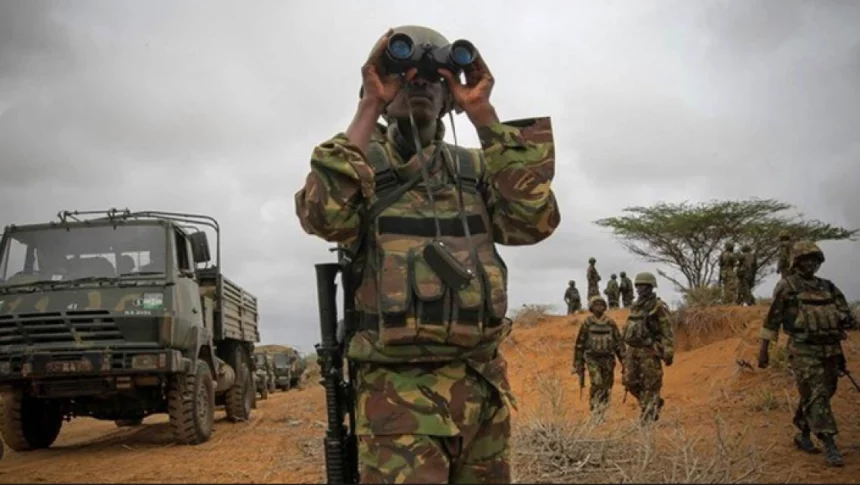The African Union Transmission Mission’s (ATMIS) planned gradual withdrawal from Somalia has raised concerns due to potential cross-border activity by the terror group al-Shabaab.
Security Analyst George Musamali expressed reservations about the looming exit on Citizen TV’s Daybreak show early Wednesday, implying that the mission’s main goal, initiated by the Kenyan Defence Forces (KDF) 12 years ago, has not been met.
He compared the situation to the US withdrawals from Afghanistan and Vietnam, where objectives remained unfulfilled.
“If you look at the way things are in Somalia, we are leaving a disjointed community that has not achieved much in terms of security. We are leaving a situation just like the Americans left Afghanistan and Vietnam; going there saying you want to achieve a couple of things but at the end of the day you leave not having achieved much,” he said.
Musamali, on the other hand, suggested that staying behind could create a dependency syndrome for the Somali government, advocating for Somalia to address its internal issues on its own.
“We need to give Somalia a chance to sort out their issues, a lesson that we should have taken a very long time ago. Time has come for us now to get out and see how Somalia will deal with their internal issues,” Musamali remarked.
He emphasized the need to lift the arms embargo on Somalia for self-defense against al Shabaab.
Meanwhile, International Affairs Analyst Edgar Githu, who was also on the morning show panel, emphasized the porous nature of Kenya’s borders with Somalia and the potential security gaps following troop withdrawal.
“We share a very huge border with Somalia and the Boni Forest has been our Achilles’ heel. I’d however say we’ve achieved quite a bit in keeping them at bay, despite getting attacks from them,” Githua remarked.
Githua also noted the importance of the Somali Government improving its image to gain citizen support, as al Shabaab exploits perceived weaknesses.
“The al Shabaab has already released propaganda videos saying that they are aware the forces would leave one day. They also know the weaknesses that plague the community such as clanism. If areas under al Shabaab appear to be better governed than what the central Government is presenting to the people, it would be the people themselves who would welcome the al Shabaab back,” he added.
Mandera North MP Bashir Abdullahi, for his part, refuted claims of limited success against al Shabaab, citing Kenyan forces’ capacity-building efforts and training of Somali troops.
“I’m sure Kenyans are not aware that Somali Police are being trained here in Kenya by the Kenyan Police Force,” he said.
Defence CS Aden Duale made the announcement during his appearance before the plenary on October 4, where he stated that the war against the terrorist group has made significant progress and that ATMIS troops will hand over security responsibilities to Somali security forces.
According to Duale, there is an ongoing ATMIS drawdown strategy under the ‘Somali transition plan,’ which began in April 2022 and will end in December 2024 in accordance with UN Security Council (UNSC) resolutions.



